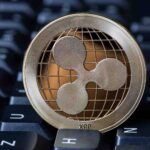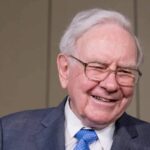In a sudden shift, the United States presidential race has seen Kamala Harris surging as the Democratic party’s likely candidate. A Reuters/Ipsos poll found a 44% intention to vote on Harris, while the prediction market disagrees by ten percentage points, pricing a 34% chance of victory.
Finbold retrieved data from Polymarket, the leading prediction market, considering a currently worth $370.67 million bet. This is one of the largest bets on the platform, and the large volume increases its accuracy.
As of this writing, the market predicts a 34% chance of victory for Harris, while Donald Trump leads with 63%. Notably, there are $29.03 million speculating on Kamala Harris’s 34% chance, up 31% in the last 24 hours. Meanwhile, Trump’s 63% priced victory has a nearly $48 million volume of bets.

Kamala Harris vs. Donald Trump: Prediction market disagrees with Reuters’s presidential race poll
Interestingly, Polymarket‘s prediction market quickly priced in Joe Biden‘s substitution for Kamala Harris, with bets flipping the table in a matter of minutes from Sunday’s announcement. This previous shift shows how the market can adapt and change according to events, highlighting its disagreement with Reuters’s poll.
Traders could have used the Reuters/Ipsos presidential race poll results to profit from the 34% odds. From a market perspective, the ten percentage points represent a significant asymmetry. Nevertheless, the asymmetry remains, hinting that Polymarket‘s traders are skeptical about the 44% reported leadership for Harris.
Essentially, a trader can profit from the difference between the share’s current price ($0.339) and a dollar ($1). The price represents the odds, while the dollar represents the event happening, with the market arbitrating the difference.
Therefore, someone who believes Kamala Harris has a 44% chance of winning should buy the $0.339 share and expect to profit 10%.
Polymarket uses the stablecoin cryptocurrency USDC, pegged to the U.S. dollar and issued by Circle, allowing people from all over the world to place their bets on different events.
Analysts have been praising prediction markets as a more accurate tool for foreshadowing events than polls and surveys. However, due to news and biases, prediction markets can be wrong and also highly volatile, requiring caution and a healthy dose of skepticism.
Disclaimer: The content on this site should not be considered investment advice. Investing is speculative. When investing, your capital is at risk.









